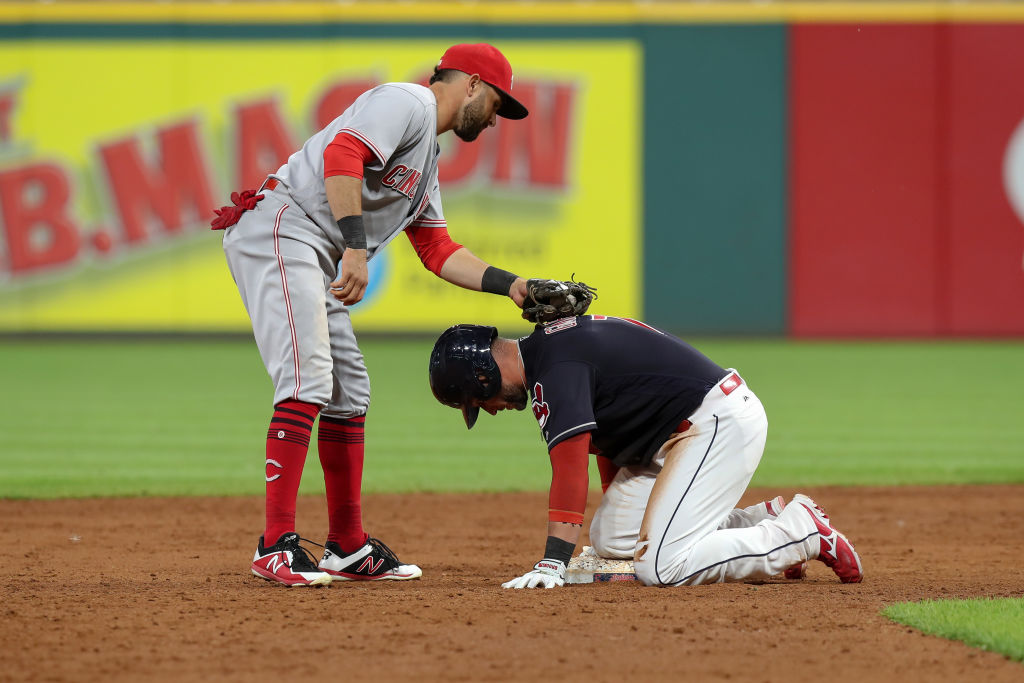If you’ve watched a Major League Baseball game lately, then you know MLB has a pace-of-play problem.
There is too much time between pitches and too few balls in play, which leads to games dragging on and, as a result, fans tuning out on TV as well as at the ballpark.
To combat this issue and help reduce the length of games, two academics (a game theorist and a computer scientist), proposed a radical solution they call The Catch-Up Rule in the Wall Street Journal earlier this week.
Essentially, what they propose is to limit the team that has the lead to only two outs per inning until their advantage on the scoreboard is lost. If the game is tied, it is three outs per side as usual.
By putting in the change, they claim MLB could cut 24 minutes off the average game.
“Average margin of victory dropped from 3.21 runs to 2.15 runs—i.e., games got considerably more competitive,” according to The WSJ. “The Baseball Haves were not so advantaged over the Have-Nots. Meanwhile, there was a dramatic reduction in the length of game. Because fewer outs are necessary, outs-per-nine-innings dropped from 52.5 to 45.9.”
Whether you’re looking to get into shape, or just get out of a funk, The Charge has got you covered. Sign up for our new wellness newsletter today.


















